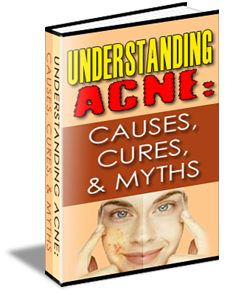Acne is not just a skin problem; it can profoundly impact emotional well-being.
The visible appearance of Acne can lead to negative thoughts, feelings, and behaviors that affect self-esteem, social life, and confidence.
This article will explore the emotional impact of Acne, including the link between stress and acne outbreaks, signs of depression in patients with Acne, and the importance of managing the emotional effects of Acne.
The Negative Effects of Acne on Emotional Health
The ramifications of skin problems can go far beyond physical appearance; they can also damage emotional health.
Experiencing distress from Acne can be ruinous, often leading to despair, unease, and a lack of self-worth.
Constantly worrying about one’s looks and feeling ashamed about one’s blemishes can be a heavy burden and severely lower the quality of life.
Though stress does not cause Acne, it can aggravate it and raise tension levels in acne sufferers.
The psychological impact of skin problems can be exacerbated by the stress it causes.
The fear of being judged, the anxiousness of not meeting society’s beauty standards, and the continual worry about one’s appearance can all contribute to high anxiety levels.
It can create a cyclical relationship between Acne and stress, escalating the other.
Acne not only affects a person’s exterior but can also take a toll on their mental health.
The psychological repercussions of Acne can range from despair to apprehension and a diminished sense of self-worth.
Symptoms of depression can vary but might include loss of appetite, listlessness, and mood swings.
Recognizing these emotional effects of Acne and seeking help when needed is essential to reduce the impact and ultimately improve one’s quality of life.
How Stress Affects Acne Outbreaks
Unwanted outbreaks of skin blemishes can be a source of frustration for many, particularly when elevated stress levels are a factor.
In addition, cortisol, a hormone produced during stress, can encourage oil production, which can further block pores and cause further irritation.
Failing to follow a healthy lifestyle can also play a role in exacerbating this problem.
For example, poor sleep habits, inadequate nutrition, and lack of exercise contribute to skin issues and are commonly experienced by those with high-stress levels.
Additionally, feelings of anxiety and nervousness can lead to excessive touching and picking of deficient areas, which can cause more irritation and scarring.
It is important to identify the role of stress in skin issues and take steps to reduce anxiousness.
Strategies such as mindfulness, yoga, and deep breathing can help to ease tension.
Those struggling with Acne may also benefit from speaking with a mental health professional who can offer guidance in managing stress-related issues.

Impact on Social Life, Self-Esteem, and Confidence
Having Acne can be a difficult struggle that affects more than just the skin.
This condition can significantly impact one’s social life, self-esteem, and confidence.
From feeling embarrassed to go out in public to becoming isolated, the effects of Acne can be far-reaching.
The emotional toll of suffering from this skin condition can be deep and damaging.
For example, experiencing low self-worth and hesitating to look in mirrors or take pictures can lead to a negative self-image.
Additionally, Acne can cause discomfort and pain when wearing certain garments, limiting expression through fashion.
Interpersonal relationships can also be affected by this condition. Feeling self-conscious and avoiding close contact with others can lead to difficulties in forming intimate connections.
Furthermore, bullying and teasing from peers can further exacerbate the effects of Acne.
Acne is not just a physical issue but one that can have a deep impact on mental and emotional health.
Therefore, addressing the condition and looking for ways to manage its effects is important.
In addition, building up self-confidence and maintaining social connections can go a long way in helping to cope with Acne.
Depression and Acne
Mental health and skin health are intertwined. People suffering from Acne can experience hopelessness, sadness, and despair due to their condition.
Anxiety can exacerbate this affliction’s physical and emotional consequences, making it arduous to endure.
It is essential for those afflicted to obtain assistance if they are struggling with depression, as it can drastically affect their quality of life.
Patients with substantial to extreme Acne are more apt to experience depression than those with mild cases.
The psychological impact of Acne can be profound, causing individuals to eschew social activities and feel secluded from their acquaintances.
Despair can amplify these sentiments, making it arduous for patients to ask for help and aid.
It is essential for those affected to realize they are not alone and that resources are available to assist them in dealing with their condition.
Depression and Acne can form a detrimental cycle, with one issue intensifying the other.
For example, people suffering from Acne may become discouraged about their appearance, resulting in additional tension and agitation.
In return, this tension and agitation can cause acne flare-ups to worsen, resulting in even more psychological distress.
Therefore, patients need professional support if they struggle with depression or anxiety, as it can help them break this pattern and enhance their overall well-being.
Common Skin Problems in Teenagers and Young Adults
It is an unfortunately common problem for teenagers and young adults, affecting up to 80% of people in this age bracket to experience skin difficulties.
These blemishes can drastically affect an individual’s self-esteem and body image, significantly reducing the quality of life.
It is frequently misunderstood as being caused by unhealthy lifestyle choices or lack of hygiene, which can only add to the emotional burden.
Transitioning into adulthood can be challenging for those with Acne, as there is often pressure to meet societal standards of beauty.
This can lead to social isolation and difficulties in relationships with peers and romantic partners.
For those with more severe Acne, the effects can be particularly devastating, often resulting in disfigurement and scarring.
By good luck, there are treatments available that can help alleviate the emotional distress of Acne.
However, seeking professional help, whether from a dermatologist or mental health specialist, is important to manage and improve the condition.
In addition, establishing healthy habits such as exercise, balanced nutrition, and stress management can also contribute to improved quality of life.

Managing the Emotional Impact of Acne
Coping with the emotional burden of skin conditions can be challenging for many.
To assist in alleviating some of the stress and distress, it is beneficial to reach out to family, friends, and even professional help if needed.
Remember, you are not alone in your struggles; this is a common issue many people face.
Please take steps to manage the emotional impact of your condition so it does not take a toll on your life or overall well-being.
Nurturing a healthy self-image is key to managing the emotional weight of skin issues.
Finding activities and hobbies that bring you joy, dressing in a way that makes you confident, and practicing self-care activities like exercise or meditation are great ways to start.
Above all, remember that your condition does not define who you are and that many other qualities make you unique and valuable.
Focus on these positive aspects, and you will begin to manage the emotional impact of your condition with more confidence.
Conclusion
In conclusion, Acne can profoundly impact the emotional well-being of individuals, particularly teenagers and young adults.
The negative effects of Acne on self-esteem, social life, and confidence cannot be understated.
Additionally, stress can exacerbate outbreaks and increase stress levels.
However, it’s important to recognize that Acne is a common skin problem, and there are ways to manage its emotional impact.
By seeking treatment, practicing self-care, and talking to a healthcare professional, individuals can take control of their Acne and improve their quality of life.
Remember, Acne is a part of life, but it doesn’t have to define it.


























